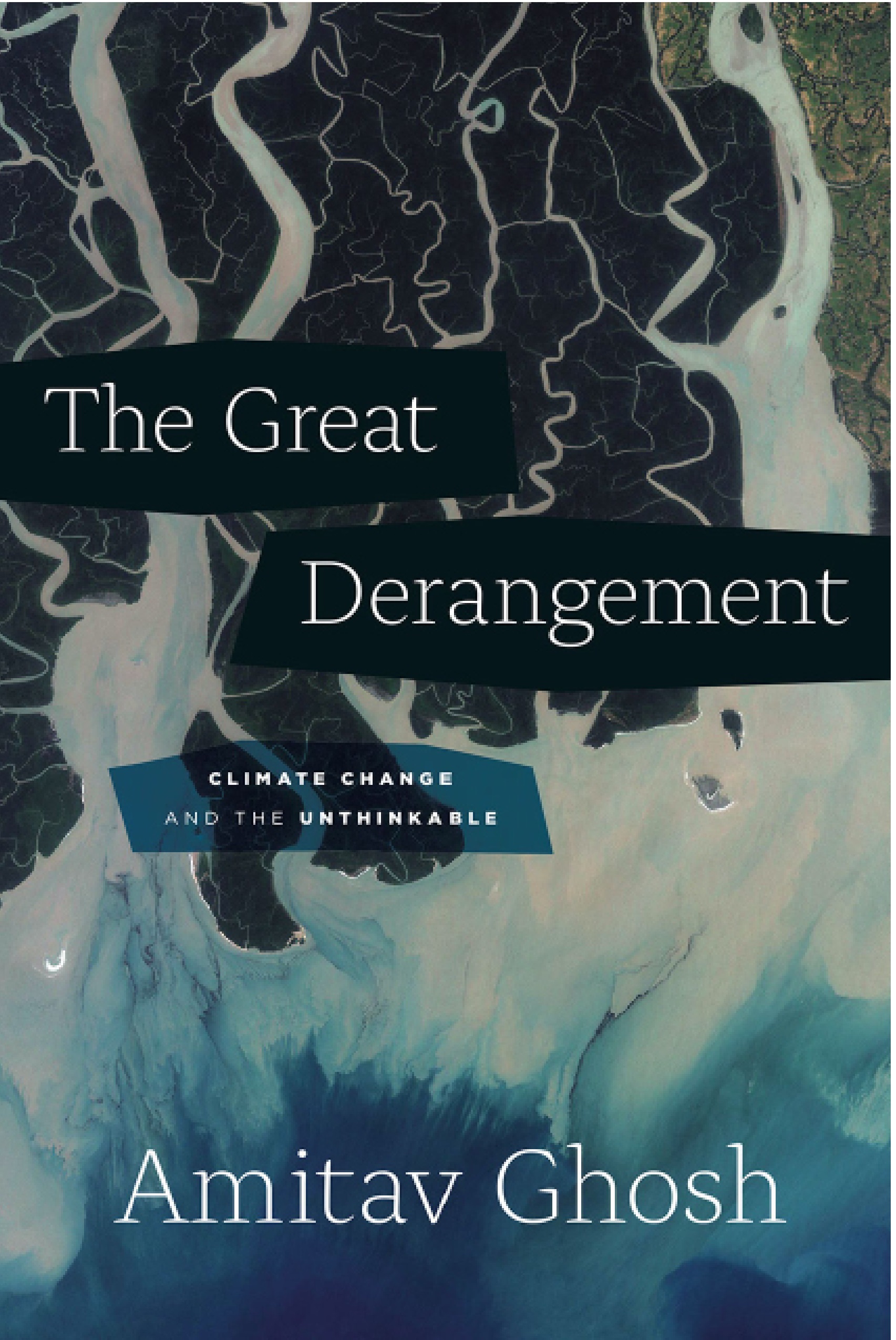This whole year, the phrase ‘climate change’ has been much in news. We have broken all records of highest temperatures. There have been many floods and droughts. The alarming rate at which our climate is changing has been increasingly visible for the last decade. Climate scientists like Michael Mann have been shouting themselves hoarse fighting the climate change deniers.
In his book The Great Derangement, Amitav Ghosh examines ‘climate change’ in the context of literary novel. Why is it, Ghosh asks, that such a serious topic has been completely banished from literary fiction? Why does a novel that deals with gigantic catastrophes, immediately gets labelled ‘science fiction’ or ‘fantasy’? And why it is that these genres are not considered elite enough to be included under the sacred umbrella of literary fiction?
These are not easy questions and Ghosh delves into the history of modern novel, starting from Gustave Flobert and nineteenth century Bengali novelist Bankim Chandra Chatterjee who sought to bring the European-style realist fiction to India. In the novels that followed this realist tradition, depicting extreme conditions occurring in Nature was frowned upon. Instead, Nature was this mild and moderate entity that was so harmless that it receded into the background. ‘Improbable’ was something that the modern novel never dealt with because it clashed with the realist sensibilities. Descriptions of terrifying seas or howling winds that eventually cause a cyclone were not serious literature. Such outbursts were banished from the elite kingdom with labels such as ‘the melodrama’, ‘science fiction’ or ‘fantasy’. What caused the separation of science fiction from literary fiction? In his brilliant analysis, Ghosh shows how the change came about gradually, how Nature was consigned to sciences, remaining off-limits from Culture. With western artists propagating this literary tradition, those in Asia and Africa were always trying hard to catch up with every new iteration of modernity, the new ‘isms’ that kept on appearing with increasing regularity. We have devastating effects of climate change occurring at a frightening pace and yet, serious literature seems to be blissfully ignorant of it. “In this regard”, says Ghosh, “the avant-garde, far from being ‘ahead’, was clearly a laggard”.
There are many aspects to the complex issue of climate change. It is no coincidence that the carbon economy in developing nations started with end of the British Empire. This is closely related to the much debated issue of sharing of responsibility to cut emissions between the developed and developing nations. For all the jubilation made over the Paris Agreement on climate change, it offers very little in terms of immediate effective action. It takes no cognizance of our behaviour that has put the planet in grave danger.
What is remarkable about The Great Derangement is the forthrightness in its analysis. Many climate change essays assume an ideal world and propose solutions. The Great Derangement goes beyond the feel-good press statements and climate agreements. It deals with the effects of the tainted era of imperialism and the dirty politics played behind doors when such agreements are signed. “The might of carbon-intensive economy cannot be fought with a politics of sincerity” – is one of the book’s blunt conclusions.
What do we see if we step back for a moment and try to look at the big picture? That is what the title of the book is all about. Greenland has lost a trillion tons of ice in four years. CO2 levels at present are the highest ever. We have droughts in places that never had shortage of water. Floods continue to threaten the low lying areas. Natural ecosystems like rain-forests and coral reefs are disappearing at an alarming rate. Meanwhile, literary fiction writers living in their ivory towers are blissfully ignorant of the crisis. Politicians who have the power to make decisive policies can see no further than the next election. And the general public, caught in a never ending cycle of carbon-intensive economy, has neither the power nor the will to do anything about the crisis.
This, then, is an era of The Great Derangement.


